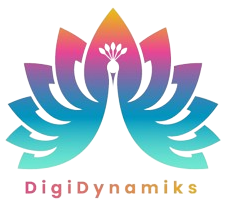User Experience (UX) research is a critical field that informs design decisions, ensuring products are user-friendly and meet the needs of their target audience. If you’re passionate about understanding user behavior and improving product experiences, a career as a UX researcher might be perfect for you. This guide covers the essential skills, education paths, and strategies to break into the field. So, let’s delve into it:
Skills Required to Become a UX Researcher:
Becoming a successful UX researcher involves mastering a combination of hard and soft skills. These skills enable researchers to conduct effective studies, analyze data, and communicate findings to improve user experiences.
Hard Skills:
1. Research Methods: Skills in conducting interviews, focus groups, and contextual inquiries to gather deep insights into user behaviors and motivations. Proficiency in designing and analyzing surveys, A/B tests, and usability tests to collect and interpret numerical data. Expertise in planning, conducting, and analyzing usability tests to identify usability issues and measure user satisfaction.
2. Statistical Analysis: Knowledge of statistical concepts and the ability to use statistical tools such as SPSS, R, or Python. This includes understanding how to perform t-tests, chi-square tests, regression analysis, and other statistical methods to interpret data accurately.
3. Design Tools: Familiarity with design and prototyping tools like Sketch, Figma, Adobe XD, and InVision. While UX researchers may not always be responsible for creating designs, understanding these tools helps in collaborating with designers and understanding the design process.
4. Information Architecture: Understanding how to structure and organize information effectively. This includes skills in creating wireframes, sitemaps, and user flows to ensure that information is accessible and logically arranged for users.
Soft Skills:
1. Analytical Thinking: The ability to analyze complex data sets and draw actionable insights. This involves critical thinking and problem-solving skills to interpret research findings and translate them into practical design recommendations.
2. Communication: Strong verbal and written communication skills are essential for presenting research findings clearly and persuasively to stakeholders. This includes creating comprehensive reports, presentations, and visualizations that convey key insights and recommendations.
3. Empathy: Adeep understanding of and sensitivity to user needs and emotions. Empathy allows UX researchers to put themselves in the users’ shoes, leading to more user-centered research and design solutions.
4. Problem–Saving: Creative thinking to address design challenges based on research insights. This involves identifying issues, brainstorming potential solutions, and evaluating their effectiveness through further research and testing.
Education Options and Qualifications Needed:
1. College:
College programs offer a comprehensive education in fields related to UX research, such as psychology, human-computer interaction, and information science. They provide access to extensive resources and networking opportunities. However, they are often costly and time-consuming, typically requiring four years to complete a bachelor’s degree.
Pros:
- College programs often provide a well-rounded education, covering various aspects of UX research, psychology, human-computer interaction (HCI), and information science. This breadth of knowledge can be highly beneficial.
- Students have access to extensive resources, including libraries, research labs, and experienced faculty. These resources can greatly enhance learning and practical experience.
- College environments offer numerous opportunities to network with peers, professors, and industry professionals, which can be invaluable for career development.
Cons:
- College degrees can be expensive, potentially leading to significant student debt.
- Earning a degree typically requires a substantial time investment, often four years for a bachelor’s degree.
- Some programs include general education requirements and electives that may not be directly related to UX research.
2. Bootcamps:
Bootcamps are short, intensive programs focused on practical UX research skills, usually lasting a few months. They are generally less expensive than college degrees and provide a fast track to entering the job market. However, they may lack the depth and breadth of traditional education and offer limited networking opportunities.
Pros:
- Bootcamps are designed to teach practical UX research skills in a short period, often focusing directly on the most relevant tools and methods.
- Generally, less expensive than a full college degree.
- Bootcamps can be completed in a few months, allowing for quicker entry into the job market.
Cons:
- While bootcamps cover essential skills, they may not provide as deep an understanding of theory or broader concepts as a college degree.
- The quality of bootcamps can vary widely, so it’s important to research and choose a reputable program.
- Compared to college, bootcamps may offer fewer opportunities for networking with a diverse group of professionals.
3. Self-Learning:
Self-learning allows individuals to study UX research at their own pace using online courses, books, and tutorials. It is flexible and cost-effective but requires high self-discipline and motivation. Without formal credentials, proving skills to employers can be challenging, and networking opportunities are limited.
Pros:
- Allows learners to study at their own pace and schedule, making it ideal for those with other commitments.
- Many resources are available for free or at a low cost, including online courses, books, and tutorials.
Cons:
- Self-learning requires a high degree of self-motivation and discipline to stay on track.
- Without a formal credential, proving your skills to potential employers might be more challenging.
- Fewer opportunities to connect with peers and mentors compared to structured programs.
4. Certificate Programs:
Certificate programs offer targeted education in UX research from reputable institutions, providing formal recognition of skills. They are usually shorter and more focused than degree programs, often available online. However, they can be expensive and may not cover as broad a range of topics.
Pros:
- Certificates from reputable institutions provide formal recognition of your skills.
- Programs are often shorter and more focused than degree programs, providing targeted education.
- Many certificate programs are available online, allowing for flexible learning schedules.
Cons:
- Can still be expensive, especially for programs from prestigious institutions.
- May not cover as broad a range of topics as a full degree program.
- The quality and recognition of certificates can vary, so it’s important to choose well-regarded programs.
5. Industry Certifications:
Industry certifications from respected organizations, such as Nielsen Norman Group, validate specific UX research skills and enhance professional credibility. They are directly relevant to job roles but can be costly and might require periodic renewal or continuing education to stay current.
Pros:
- Certifications from well-known industry bodies can enhance your resume and credibility.
- Often designed to validate specific skills or knowledge areas, making them directly relevant to job roles.
Cons:
- Some certifications can be expensive.
- Certifications might require periodic renewal or continuing education to stay current.
6. Recommended Degrees:
- Human-Computer Interaction (HCI)
- Information Science
- Design
Gaining Experience to Become a UX Researcher:
Internships:
Internships provide aspiring UX researchers with hands-on experience in a professional setting, allowing them to apply theoretical knowledge to real-world projects. Interns typically work under the guidance of experienced researchers, gaining insights into the workflow, tools, and methodologies used in the industry.
This practical experience is invaluable for building a strong portfolio and developing professional skills. Additionally, internships offer networking opportunities with professionals and potential mentors, which can be beneficial for future job prospects.
Freelancing:
Freelancing as a UX researcher allows individuals to work independently on a variety of projects for different clients, offering flexibility and the opportunity to choose work that matches their interests and skills Freelancers can build a diverse portfolio by tackling a variety of projects on, to increase their market This approach requires strong personal marketing skills and business acumen to manage contracts, pricing and customer relationships.
While freelancing offers freedom and potential work experiences, it also comes with the challenges of inconsistent income and the constant need to find new clients
Volunteering:
Volunteering in UX research involves offering skills and expertise to non-profit organizations, startups, or community projects without financial compensation. This approach provides practical experience, helping to build a portfolio while contributing to meaningful causes. Volunteers can gain exposure to different research methods and tools, enhance their problem-solving abilities, and demonstrate their commitment to the field. Volunteering also offers networking opportunities and can lead to recommendations or future paid opportunities.
Finding a Job in UX Research:
Networking:
Networking is a way of building and maintaining professional relationships that can provide support, information and opportunities in UX research. This includes attending industry events, conferences and events where you can network with other professionals, share experiences, learn about new trends and job openings Effective networking can lead to mentoring, collaboration and referrals, which are invaluable for business improvement.
Online Communities:
Online communities are digital forums where UX researchers and enthusiasts gather to share knowledge, ask questions, and discuss industry trends. These communities, such as LinkedIn groups, Reddit r/UXResearch, Designer Hangout and other Slack channels, provide a place for continuous learning and professional development Members can find information about their work, participate in discussions, and stay updated on the latest techniques. Engaging in these communities helps build a professional presence and connect with peers globally, though it requires active participation to reap the full benefits.
Job Boards:
Job boards are websites that list employment opportunities across various industries, including UX research. Platforms like LinkedIn, indeed, Glassdoor, and specialized sites like UX Jobs Board offer a centralized place to find and apply for jobs. Job boards provide detailed job descriptions, required qualifications, and application instructions, making the job search process more efficient. They often allow users to set up alerts for specific types of jobs, ensuring they are notified of relevant openings.
However, the competition can be intense, and it’s important to tailor applications to stand out among many applicants.





